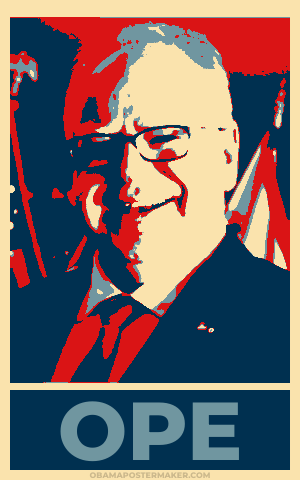I'm currently a medical student and a licensed EMT with a chunk of professional experience in medicine as well as having multiple chronic illnesses, a couple of which are very stigmatized. I've kind of settled into conducting my appointments like I'm presenting a patient to an attending physician. I still use I/me/my/mine and describe things from my perspective, but it's still a rather....professional(?) discussion. I feel like it helps me approach the conversation in a productive way, and my physicians seem pretty receptive to my suggestions for treatment and testing...but it also feels like I'm dehumanizing myself a bit.
The biggest issue I've had tends to be with nurses/NPs/admin/etc when I call and say "hey, I'm having these weird symptoms and I think this is the diagnosis, can you get me in to see the physician?" and they sort of short-circuit almost because they seem to be in the habit of exerting their own judgement about a situation.
I recently had a nurse try to punt me back to my primary care physician because the specialist was out of the office and she wouldn't escalate to the physician on-call because she didn't understand that I had already talked to my primary care physician and she said she wasn't equipped to deal with it. (This was an issue that has the potential to be life-threatening in a matter of days that, fortunately, I knew how to kinda sorta manage on my own for a little bit.)

My mistake, I recalled incorrectly. It got 83% wrong. https://arstechnica.com/science/2024/01/dont-use-chatgpt-to-diagnose-your-kids-illness-study-finds-83-error-rate/
The chat interface is stupid in so many ways and I would hate using text to talk to a patient myself. There are so many non-verbal aspects of communication that are hard to teach to humans that would be impossible to teach to an AI. If you are familiar with people and know how to work with them, you can pick up on things like intonation and body language that can indicate that they didn't actually understand the question and you need to rephrase it to get the information you need, or that there's something the patient is uncomfortable about saying/asking. Or indications that they might be lying about things like sexual activity or substance use. And that's not even getting into the part where AI's can't do a physical exam which may reveal things that the interview did not. This also ignores patients that can't tell you what's wrong because they are babies or they have an altered mental status or are unconscious. There are so many situations where an LLM is just completely fucking useless in the diagnostic process, and even more when you start talking about treatments that aren't pills.
Also, the exams are only one part of your evaluation to get through medical training. As a medical student and as a resident, your performance and interactions are constantly evaluated and examined to ensure that you are actually competent as a physician before you're allowed to see patients without a supervising attending physician. For example, there was a student at my school that had almost perfect grades and passed the first board exam easily, but once he was in the room with real patients and interacting with the other medical staff, it became blatantly apparent that he had no business being in the medical field at all. He said and did things that were wildly inappropriate and was summarily expelled. If becoming a doctor was just a matter of passing the boards, he would have gotten through and likely would have been an actual danger to patients. Medicine is as much an art as it is a science, and the only way to test the art portion of it is through supervised practice until they are able to operate independently.